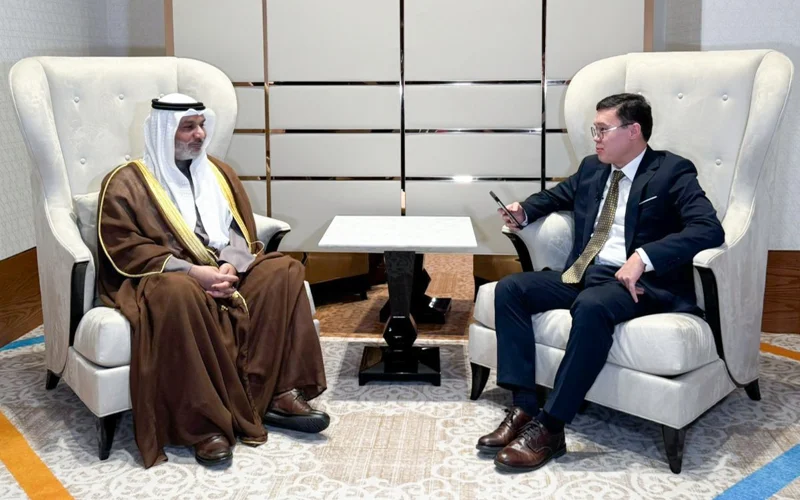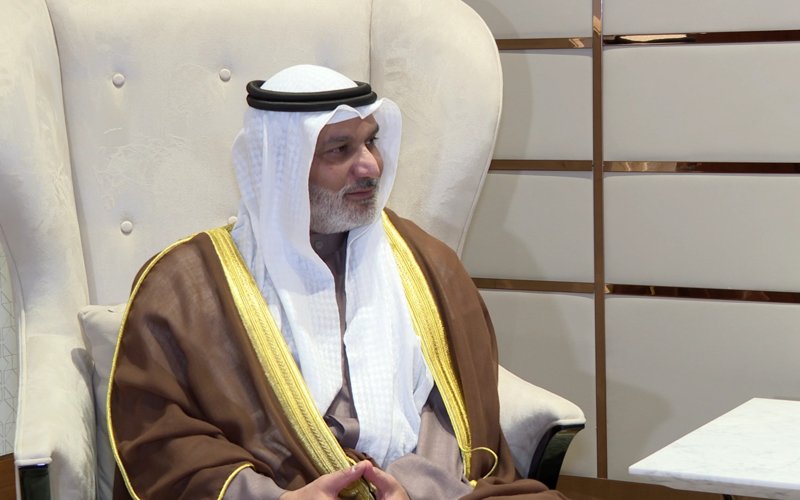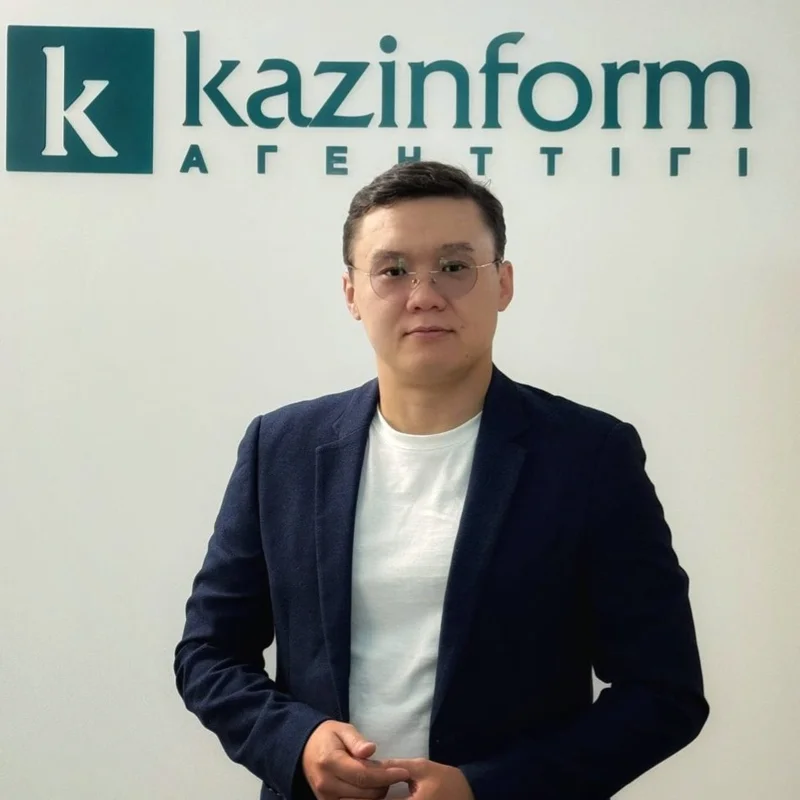Kazakh President is widely recognized as a respected global statesman: Haitham Al Ghais, Secretary General of OPEC
Astana is hosting Kazakhstan Energy Week, a key international platform for dialogue on the future of global energy. Among its distinguished guests is Haitham Al Ghais, Secretary General of the Organization of the Petroleum Exporting Countries (OPEC), an experienced Kuwaiti oil executive and prominent voice on global energy security.

In an interview with a Kazinform News Agency correspondent, the OPEC Secretary General spoke about Kazakhstan’s vital role within the OPEC+ alliance, the country’s importance in the global oil market, strategies to ensure stability amid growing volatility, and his assessment of President Kassym-Jomart Tokayev’s political and economic course.
– Mr. Secretary General, thank you for joining us. To begin, what role do you assign to Kazakhstan as an oil producer within the OPEC+ alliance, and how important is its position in the current architecture of the global oil market?
– First of all, thank you for this interview. It is always a great pleasure to be back in Kazakhstan. Although this is my first time speaking at Kazakhstan Energy Week, I am very honored to share the stage today with His Excellency the Prime Minister and His Excellency the Minister of Energy.
Kazakhstan is a prominent global energy player. Over the years, its oil and gas production, vast natural resource endowment, and its strategic geographical location have made it a vital supplier not only for Europe, but also for Asia and Central Asia. This unique position allows Kazakhstan to play an increasingly important role in global energy security.
Within OPEC+, Kazakhstan has been a founding member since the Declaration of Cooperation was signed nearly a decade ago. It was one of the ten non-OPEC producers that joined us at the very beginning, and since then, Kazakhstan has played a proactive role, including through participation in the Joint Ministerial Monitoring Committee. With proven reserves of around 30 billion barrels—about 2% of the world’s total—Kazakhstan is well positioned to remain a key and reliable energy supplier for decades to come.
– In your view, how can Kazakhstan strengthen its image as a reliable exporter of oil and gas amid the current geopolitical situation?
– I would say Kazakhstan has already proven itself as a reliable oil and gas supplier. Its central location makes it a hub between Europe, Asia, and Central Asia, while its political stability under the wise leadership of President Tokayev provides confidence to investors and partners alike.
The government’s openness to foreign investment, coupled with strong collaboration with local companies, ensures the continuity of its energy exports. Kazakhstan is not only a significant player in oil and gas, but also in uranium and other strategic minerals, and increasingly in renewables such as wind power.
At OPEC, we share Kazakhstan’s view that the future of energy requires investment in all sources—oil, gas, nuclear, and renewables. Kazakhstan’s growing economy and rising population will require more energy, and the country is already taking the right steps to secure its role as a stable, diversified energy provider.

– Many analysts speak of a new era of volatility in the oil market. What strategy will OPEC adopt to maintain a balance between supply and demand in 2025–2026?
– Since 2016, OPEC and OPEC+ have consistently worked to preserve stability in the oil market. A clear example was in 2020, when the COVID-19 pandemic caused an unprecedented collapse in global demand. Through decisive production adjustments, OPEC+ helped restore stability relatively quickly, which also supported the broader global economy.
Going forward, we will continue to apply the same principles—balancing supply and demand and creating a predictable environment that encourages investment. Stability is not only about the short term; it is about ensuring that future demand is met. OPEC projects that global oil demand will reach 123 million barrels per day by 2050. To achieve this, we must invest today, because the industry requires years to bring new capacity online, while natural decline rates continue at around 5–6% annually.
Calls to stop investing in oil and gas are misguided and dangerous, as they jeopardize future energy security. For global economic growth—including in Kazakhstan—continued investment in oil, gas, and all forms of energy is absolutely essential.
– Does OPEC see potential in expanding its membership, including observers from Central Asia or Caspian region countries?
– OPEC has always maintained an open-door policy. Our statutes clearly provide a framework for welcoming new members, provided they are substantial net exporters of oil and share the same principles and values as our current members.
We welcome interest from any part of the world, including Central Asia. At the same time, OPEC engages in extensive dialogue not only with producers, but also with consumers such as India, China, and the European Union. Our approach is inclusive, cooperative, and focused on building mutual understanding in the global energy dialogue.
– OPEC has previously criticized what it described as an “unrealistic” or “hasty” energy transition. In your opinion, what steps should developing countries, including Kazakhstan, take to ensure a “just transition” to low-carbon energy?
– This is an excellent question. Too often, the term “energy transition” has been misinterpreted to mean abandoning oil and gas. But history shows that energy transitions have always been additive, not subtractive. Wood, coal, oil, gas, and now renewables—all continue to coexist and grow in absolute terms.
Each country must chart its own path. For Kazakhstan, this means balancing its role as a major oil and gas producer with investments in uranium and renewables such as wind. The principle of “common but differentiated responsibilities” enshrined in the UNFCCC remains fundamental. Developing countries cannot be expected to follow the same trajectory as advanced economies, and energy security must go hand in hand with emissions reduction.
OPEC firmly believes that no source of energy should be discriminated against. What matters is ensuring access to affordable, reliable, and sustainable energy for all.
– How would you assess President Tokayev’s political course, both in terms of Kazakhstan’s position in the global oil market and OPEC+, and in relation to his broader domestic reforms aimed at economic modernization, political openness, and social stability?
– Today I had the honor and privilege of meeting President Tokayev for the first time. He is widely recognized as a respected global statesman, and his wisdom and experience are evident in Kazakhstan’s successful evolution as a leading energy supplier.
The President expressed strong support for OPEC’s role in stabilizing global markets, which is very encouraging. He warmly welcomed my visit as a step toward deepening cooperation between OPEC and Kazakhstan, both at the governmental and institutional levels.
I would also like to take this opportunity to thank Kazinform News Agency for this interview. It is my first with you, and I hope it will not be the last. We see great potential in strengthening communication and media outreach between OPEC and Kazinform. As I mentioned, Kazakhstan is one of the vital members of the OPEC+ cooperation, and therefore, closer collaboration on the media front with our OPEC communications teams is equally important.
Thank you once again, and I very much look forward to returning to this beautiful country in the future.
Earlier, it was reported that President Kassym-Jomart Tokayev hosted OPEC Secretary General Haitham Al Ghais at the Akorda Residence.
